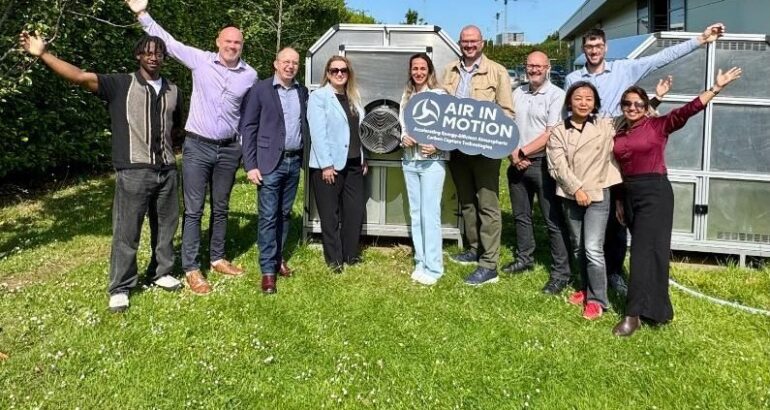Groundbreaking technology developed at Trinity College Dublin, which captures carbon dioxide from the atmosphere, is being put through its paces at Dublin Airport – with the team behind its creation hoping to demonstrate its wider potential for capturing carbon in the aviation and e-fuel industries.
Director of Sustainability at daa, Andrea Carroll said “We are pleased to support Trinity College Dublin’s trial of carbon capture technology at Dublin Airport. This project offers daa an opportunity to explore carbon capture as a potential means of decarbonising our operations and industry. The collaboration between Trinity College Dublin and Dublin Airport exemplifies the kind of forward-thinking partnerships that are essential for driving innovation and real change as we all make our way towards a Net Zero world.”
The project has been funded by a prestigious European Innovation Council (EIC) Transition grant (AirInMotion) and supported by the Enterprise Ireland.
Developed by Prof. Wolfgang Schmitt and Dr Sebastien Vaesen from Trinity’s School of Chemistry and AMBER, the Taighde Éireann – Research Ireland Centre for Advanced Materials and BioEngineering Research, this pioneering initiative focuses on delivering scalable, energy-efficient atmospheric carbon dioxide capture solutions to help reduce industrial emissions. This Direct Air Capture (DAC) technology is a critical tool in achieving net-zero targets and has the potential to drive real, measurable change in combating climate change.
The demonstrator has been operating for three months at Dublin Airport, collecting critical data on efficiency, operational stability, and energy consumption. Insights gained from this deployment have provided crucial validation of the technology performance and will shape future development and commercial applications.
Image Credit: Dublin Airport
Irish Aviation Research Institute © 6 July 2025 All Rights Reserved

